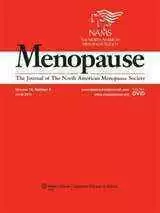Lancet 2000;356:399-400.
Celiac.com Sponsor (A12):
(Celiac.com 08/13/2000) According to a recent study by Dr. Antonio Gasbarrini and colleagues from Gemelli Hospital, Catholic University, in Rome, celiac disease may play a role in recurrent spontaneous abortion and intrauterine fetal growth retardation. The researchers studied 44 patients who had a history of spontaneous abortion, 39 patients who had fetuses with intrauterine growth retardation and 50 normal controls. For each group the researchers measured serum concentrations of IgA anti-endomysial and IgG anti-transglutaminase.
According to Dr. Antonio Gasbarrini: The patients with recurrent spontaneous abortion and those with intrauterine fetal growth retardation had a significantly higher frequency of serological markers of celiac disease than controls, as reported in the July 29th issue of The Lancet. Further, they found that three patients with recurrent spontaneous abortion (8%) and six patients whose fetuses had growth retardation (15%) tested positive for celiac disease. In addition, nine of the patients also underwent an endoscopy (jejunal biopsy), and eight were positive for celiac disease. Of the positive endoscopy group three patients showed duodenal mucosa with chronic inflammation and
subtotal villous atrophy and five patients presented with severe mucosal atrophy.
The researchers also point out that while about 1 in 1000 people in Europe have some symptomatic gluten-sensitivity, it is now becoming clear that a greater proportion of individuals have a clinically silent form of the
disease, and probably many others have a minor form of enteropathy. Their research shows that it is important to recognize celiac disease as a possible risk factor for recurrent spontaneous abortion and intrauterine fetal growth retardation, but it remains to be seen whether the removal of gluten from the diet will decrease the incidence of both problems for women with celiac disease.




.webp.81954ac272b4af38fec38b357b310058.webp)


Recommended Comments